
A package that wraps some of the most common Win32 API calls using FFI to make
them accessible to Dart code without requiring a C compiler or the Windows SDK.
Part of the (Dart | Windows)https://github.com/dart-windows suite of Windows
packages.
In addition to exposing the APIs themselves, this package offers a variety of instructive examples for more complex FFI usage scenarios.
By design, this package provides minimal modifications to the Win32 API to support Dart idioms. The goal is to provide high familiarity to an existing Windows developer. Other Dart packages may build on these primitives to provide a friendly API for Dart and Flutter developers. A good example of that is win32_registry, which offers a set of APIs for accessing the Windows registry that don't require knowledge of FFI.
Usage
This package lets you write apps that use the Windows API directly from Dart, by wrapping common Win32, COM and Windows Runtime APIs using Dart FFI.
You could use it to call a Win32 API like EnumFontFamiliesEx to enumerate all locally-installed fonts:
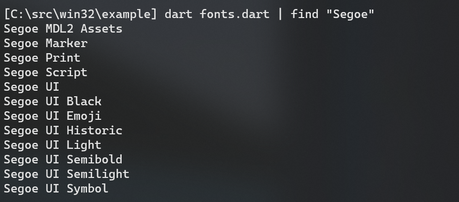
or access system information that is not exposed directly by the Dart framework libraries:
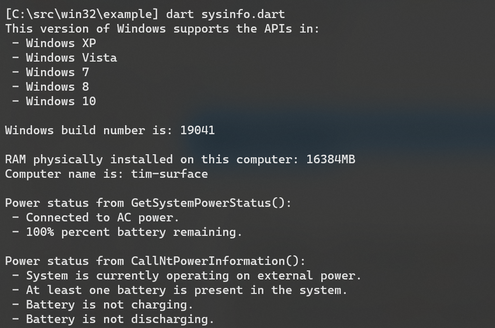
You could use it to build a Windows app with Flutter that relies on Win32 APIs:
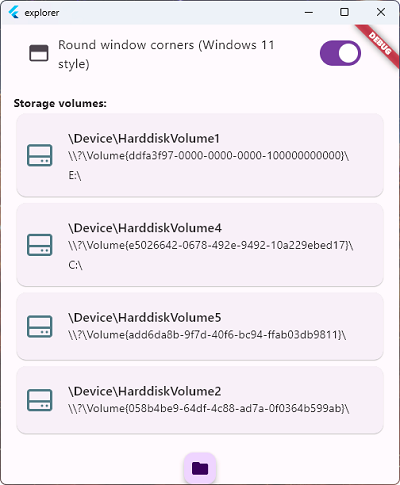
You could even use it to build a traditional Win32 app, written purely in Dart, that could have come straight out of a classic Charles Petzold book on programming Windows apps:
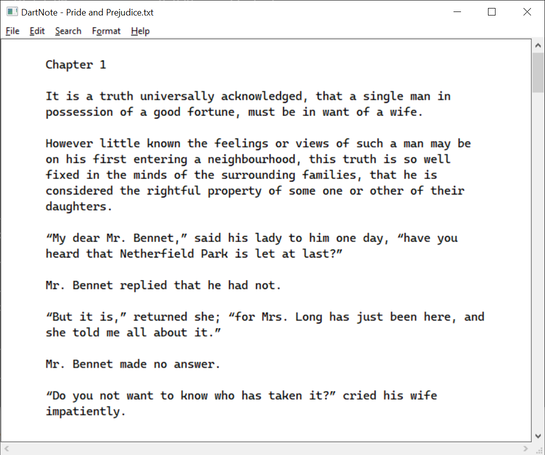
or even, perhaps, a fully-fledged game using GDI:
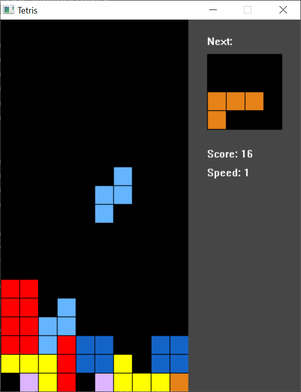
You might even build a package that depends upon it, like dart_console, which enables advanced console manipulation:
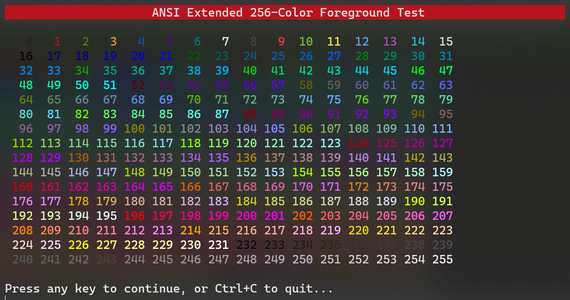
or filepicker_windows, which provides a modern Windows file picker for Flutter:
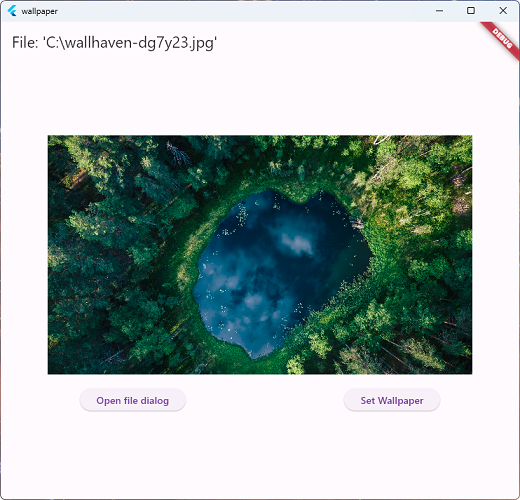
Getting started
Many more samples can be found in the example\ subdirectory, along with a test
suite in the test\ subdirectory that shows other API calls.
A good starting point is hello.dart. This example demonstrates creating a
Win32 window and responding to common messages such as WM_PAINT through a
WindowProc callback function.
To run it, type:
dart example\hello.dart
This should display a window with a text message.
This can be compiled into a standalone Win32 executable by running:
dart compile exe example\hello.dart -o example\bin\hello.exe
For more information on working with the Win32 library from Dart, consult the documentation, in particular the sections on string manipulation and COM objects.
Examples
There are many examples included with this package that demonstrate calling
various Win32, COM and WinRT APIs. These can be found in the example\ folder;
a short description of each example can be found here.
Packages built on win32
There are a growing set of packages that build on the relatively low-level APIs exposed by the Dart win32 package to provide more idiomatic class wrappers. These packages typically don't require any knowledge of Windows programming models or FFI, and are ideal for incorporation into Flutter apps for Windows.
Specifically, this includes:
- dart_console: provides Dart libraries for building TUIs (terminal UIs) or console apps that use more than the stdin/stdout services provided by Dart itself.
- device_info_plus_windows: provides information about the characteristics of the current device.
- filepicker_windows: makes the Windows file open / save common dialog boxes available to Flutter and Dart apps.
- path_provider_windows: provides a way for Dart apps to find common Windows file locations (such as the documents directory).
- win32_registry: provides Dart classes for accessing and manipulating the Windows registry.
- win32_runner: provides an experimental shell (or runner) for hosting Flutter apps without needing a C++ compiler to create the EXE.
Requirements
This package assumes the Dart 64-bit compiler, running on Windows. Many commands are tested on 32-bit Windows, but due to the lack of a Dart compiler for 32-bit executables and the ever diminishing number of machines running 32-bit OSes, this is inevitably a low priority. The package is also tested on ARM architecture, running in x64 emulation mode.
Features and bugs
The current package only projects a subset of the Win32 API, but new APIs will be added based on user demand. I'm particularly interested in unblocking the creation of new Dart packages for Windows. Please file feature requests and bugs at the issue tracker.
Backwards compatibility
The library version tries to model semver, but you should not assume a strict guarantee of no breaking changes between minor versions. That guarantee is not possible to make, for several reasons:
- Several times, fixing a bug in the fidelity of the Win32 API has tightened the
constraints over a parameter (for example,
PointerbecomesPointer<INPUT>). These changes should be signalled in the log. - Adding new features may itself cause a breaking change. For example, if you declare a missing Windows constant in your own code that is then added, Dart will complain about the duplicate definition.
One solution is to pin to a specific version of Win32, or declare a more
tightly-bounded version dependency (e.g. '>=1.7.0 <1.8.0' rather than merely
^1.7.0). But the best approach is simply to test regularly with the latest
version of this package, and continue to move your minimum forward. As the
package matures, these issues should gradually fade away.
Acknowledgements
The Tetris example listed above is a fuller worked example of a reasonably complete program that uses the Dart Win32 package. It is a port of a C version of the game by Chang-Hung Liang. More information...
The C implementation of Snake is by David Jones, and is ported with his permission.
The original C version of the Notepad example was authored by Charles Petzold, and is kindly licensed by him without restriction.
The original C version of the custom title bar example is by Dmitriy Kubyshkin and is licensed by him under the MIT License.
The summary Win32 API documentation comments are licensed by Microsoft under the Creative Commons Attribution 4.0 International Public License.

